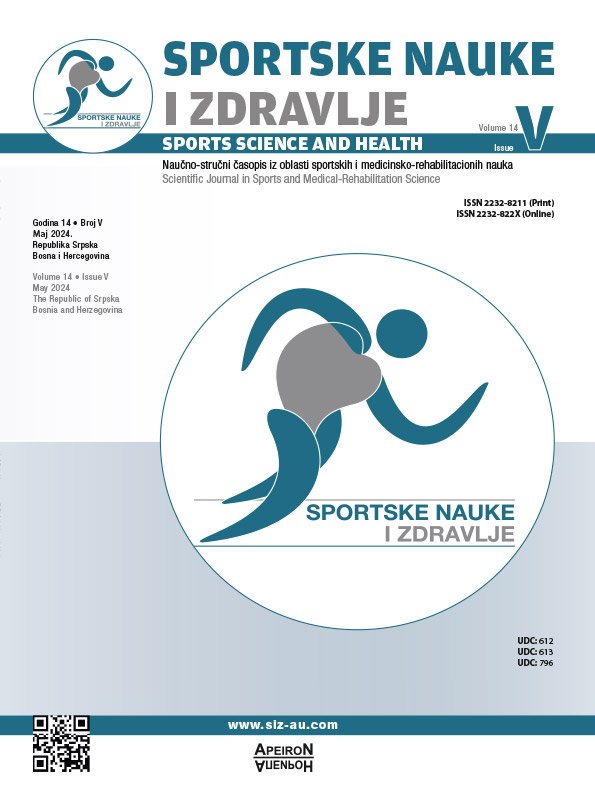Internal domain as a developmental potential of the Fudokan karate
Keywords:
Fudokan, domain, developmentAbstract
In the sports domain karate gains popularity of enormous proportions. Judging by the massiveness criterion, it is ranked immediately behind football. However, this ranking is not in accordance with the appropriate organizational concept, that would have visible integrative feature. The problem of organizational and stylistic dissociation is transferred onto the national level, which causes the presence of a variety of competitive disciplines, the way of organization, an appropriate training approach, various interpretations of the basic karate principles etc. Although such situation may create, to some extent, an illusion of positive sides (the possibility of training selection, larger number of stylistic varieties for training relatively “different“ forms of karate etc.) which is reflected on the massiveness, in organizational and conceptual context (basically of one skill) makes the problems in creating an effective concept of karate management. In this respect, various concepts of karate organization can be noticed, based on stylistic determinations. One of the autonomous organizational karate forms is The World Fudokan Federation - WFF, with its national federations as integral and constituent parts. Its basic concept is oriented towards the fostering of the traditional approach to karate (traditional karate do), i.e. fostering the traditional karate principles, established by the founder of the modern karate Gichin Funakoshi. As the organization, which, conditionally speaking, is an ideological antipode to the so-called sports karate, it endeavors to affirm and preserve the basic karate values and adjust them to modern sports and social tendencies. In this respect, it faces numerous organizational, sports-political, conceptual and other problems, induced by the external environment, but may be overcome by the activities and tendencies generated within the internal domain of Fudokan Karate organization. Empirical research, carried out in the form of transversal study, was aimed at the identification of some facts of internal organizational domain of Fudokan, which may have positive impact on its development in the upcoming five-year-period, and are perceived by the main Fudokan karate holders (instructors and trainers). The respondent sample comprised 73 instructors/trainers as the main activity holders in the clubs. The research was in the form of a survey and the key research instrument was a questionnaire devised as an estimation scale. The results have proved that the greatest potential for Fudokan development in the future belongs to the factors of Internal domain – Organizational structure, Organizational culture and Organizational resources, with the high level of possible impact.
